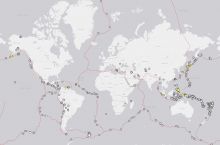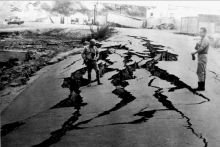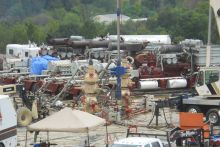
Information on this page was collected from the source acknowledged below:
"Worldwide the probability that an earthquake will be followed within 3 days by a large earthquake nearby is somewhere just over 6%. In California, that probability is about 6%. This means that there is about a 94% chance that any earthquake will NOT be a foreshock. In California, about half of the biggest earthquakes were preceded by foreshocks; the other half were not. At this time, we cannot tell whether or not an earthquake is a foreshock until something larger happens after it... so only in retrospect."
Learn More:
- Earthquake Early Warning (Webpage), U.S. Geological Survey
Basic overview of earthquake early warning systems, which provide seconds to minutes of warning about an earthquake after it has occurred.
- ShakeAlert (Website), U.S. Geological Survey
Project of a USGS-led coalition to produce an earthquake early warning system for the West Coast of the United States. This project aims ultimately to provide seconds to minutes of warning to the public via a smartphone or computer app, as well as sending a warning to utilities and industry that will allow for protective measures to be taken after an earthquake has begun but prior to the arrival of major shaking.
- Latest Earthquakes (Map), U.S. Geological Survey
Interactive map showing recent earthquakes worldwide, including time, location, and magnitude.




